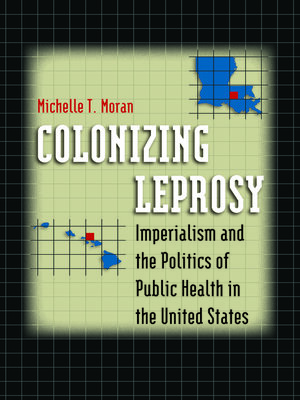Colonizing Leprosy
ebook ∣ Imperialism and the Politics of Public Health in the United States · Studies in Social Medicine
By Michelle T. Moran

Sign up to save your library
With an OverDrive account, you can save your favorite libraries for at-a-glance information about availability. Find out more about OverDrive accounts.
Find this title in Libby, the library reading app by OverDrive.



Search for a digital library with this title
Title found at these libraries:
| Library Name | Distance |
|---|---|
| Loading... |
By comparing institutions in Hawai'i and Louisiana designed to incarcerate individuals with a highly stigmatized disease, Colonizing Leprosy provides an innovative study of the complex relationship between U.S. imperialism and public health policy in the late nineteenth and early twentieth centuries. Focusing on the Kalaupapa Settlement in Moloka'i and the U.S. National Leprosarium in Carville, Michelle Moran shows not only how public health policy emerged as a tool of empire in America's colonies, but also how imperial ideologies and racial attitudes shaped practices at home.
Although medical personnel at both sites considered leprosy a colonial disease requiring strict isolation, Moran demonstrates that they adapted regulations developed at one site for use at the other by changing rules to conform to ideas of how "natives" and "Americans" should be treated. By analyzing administrators' decisions, physicians' treatments, and patients' protests, Moran examines the roles that gender, race, ethnicity, and sexuality played in shaping both public opinion and health policy. Colonizing Leprosy makes an important contribution to an understanding of how imperial imperatives, public health practices, and patient activism informed debates over the constitution and health of American bodies.







